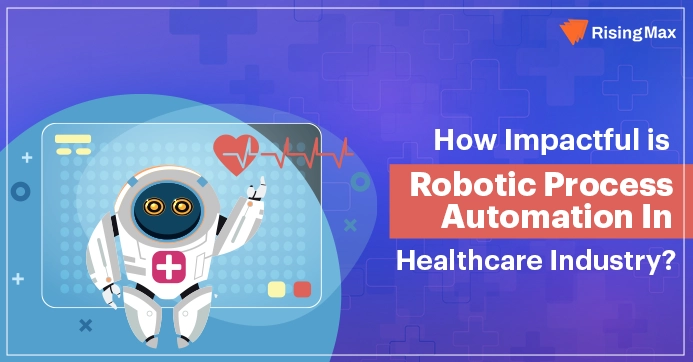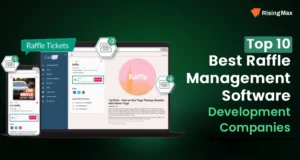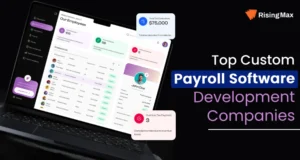Robotic process automation healthcare is a smart software program that is efficient, effective, and can perform repetitive tasks, unlike humans. These smart bots can do quick transactions, manipulate data, and validate responses.
RPA is a software program that uses bots/agents that perform all the assigned tasks, which are generally pre-programmed for them. The main job of an RPA is to automate the process, which improves accuracy and reduces the chance of errors.

Stats & Figures
-
The neurology application in the medical robots market is anticipated to expand at 18.5% CAGR by 2027 on account of the increasing geriatric population and increasing brain-related disorders, and product innovation is set to play an important role.
-
The healthcare robotics market is projected to grow to $2.8 billion in revenue by 2021. That’s because the applications in healthcare seem endless. It’s a market that includes surgical, rehabilitation, and hospital robots.
-
Mordor Intelligence has stated that The Medical Robotic Systems market is expected to grow by registering a CAGR of 17.3% during the forecast period. The public’s perception of the use of medical robots in senior living facilities has improved over the last couple of years.
-
According to the International Federation of Robotics, sales of medical robots increased by 73% compared to 2016 to 2,931 units in 2017, accounting for a share of 2.7% of the total unit sales of professional service robots.
RisingMax Inc. is one of the top modern-age platform development companies. You can ask us for a free consultation for any of your queries and get assured satisfaction from day one. Let’s join hands because Our results are your success!
Future Of Investment In HealthCare RPA
Robotic process automation, or RPA for healthcare, has been in high demand for the last few years. Although RPA is an emerging technology, only some healthcare industries can utilize the charm of this software. A recent report made by Gartner stated that there would be a 50% jump in just 3 years.
We’ve seen how robotics process automation can make a revolutionary change in the healthcare industry. RPA is going to evolve the latest technologies and will focus on the area of advancement for next-gen RPA software development.
The robotics industries will deploy machine learning, IoT, big data, and other technologies to improve healthcare and patient treatment. Robotic process automation can perform tasks effectively, efficiently, and adequately. Many healthcare industries are awaiting next-gen RPA to act well and give an optimum solution for the patient’s treatment and healthcare management.
Let’s Consider An Example
Intel China collaborates with the Suzhou Innovation Research Lab to develop an incubator for healthcare industries. It helps them deliver research and technical support to the industry. Intel is adopting IoT and artificial intelligence in the healthcare field to increase the efficiency of medical robotics. Intel has claimed the results will be outstanding, and it fulfills the various needs of healthcare industries that it has been seeking for ages.
AI Chatbot Development Company in New York
Benefits Of Robotics Process Automation
Consistent Reliability With Accuracy
Robotics process automation is a process that eliminates the use of manpower and shifts the robotics in place for repetitive tasks to accomplish in lesser time. The robotics process automation technology would be able to perform accurately and is 100% reliable technology.
This will make every system efficient, robust, and fully secure. The elimination of manpower will increase the productivity of the system surprisingly and definitely would help the system to make cost-friendly solutions.
It doesn’t only accelerate the decision-making process, but it uses large data sets from the events and functions with adequacy. It generates accurate results leaving no chances for errors.
Human Productivity
A robotics task is typically monotonous in nature but can effectively increase productivity and provide simplified solutions. A human with a robotics system can work in a healthy atmosphere that reduces the chance of errors.
Cost Effective
Robotics mechanism costs less than a human; approximately Healthcare RPA cost will be reduced to 35% straight away. Additionally, they can perform 24×7 for the whole year. With the help of robotic process automation in healthcare, ROI can be achieved in a year.
Security
The robotic systems perform tasks simultaneously and generally perform at a modular level. Hence, the chances of security breaches in the system would be almost impossible. Although Robotics process automation is favorable to industries with many benefits, there is always a risk of fraud and data leakage in the RPA-based system.
RPA can easily adopt the automated process for repetitive tasks that save time, effort, and cost. Robotic process automation has special bots capable of handling secure data transfer. It moves the data across the system and ensures that the transit doesn’t have backdoors.
Seize Opportunities for Scale
Robotics Process Automation is a very important aspect of irregular workflow or a drastic change in supply volume. Imagine a situation when your business has received huge orders, and you’re short of time.
A traditional approach would hire part-time, contract employees to finish this task, and you still need to invest the efforts and time to train them. In an RPA system that works on automation processes, one can simply scale the productivity and meet the client’s solutions each time.
Scalability
Robotics are flexible and quick enough to adopt any new market or evolve a trend. They can generally work in any environment while taking care of the industry’s economic growth. Robotic process automation in healthcare can uplift patient care and save time & money for healthcare institutions.
Inefficiency and ineffectiveness are common in a traditional healthcare management system. The healthcare industry should rely on something other than manual systems to improve such areas.
Robotic process automation can help in such hazardous situations. Healthcare robotic process automation can provide a robust solution and judgment based on complex actions that the healthcare industry has been seeking for a long time.
Some of the RPA tasks could be like this:
- Registration & billing
- Insurance claim management
- Revenue and Financial Functions
- Administrative Action
- Data Management
- Finance and revenue functions
- Administrative actions
Let’s discuss some RPA-used cases in the healthcare field of robotics process automation.
Robotics Process Automation Case Studies
Used Case 1: Data Sharing & Records
Healthcare data comes from various sources and is put together to process and reuse. The data source could be an appointment schedule, a third-party portal, insurance companies, and the healthcare database.
Robotics process automation (RPA) can be a game-changer with a significant meaning that requires an easy streamlining and efficient process of the patient’s records.
RPA is very welcome in the healthcare industry that can share data electronically. The shared data adheres to privacy protocols that give permission rights for easy transmission.
Let’s understand this with an example.
Dorset has implemented RPA in its existing system that entertains quick click-through access. It has algorithms named Wyman that allow accessing all the medical records using RPA in the system. RPA enables fast detection and quick responses to cyber attacks.
It keeps the pace of the data transfer within the system, allowing work efficiency and data not to be shared outside the system. The RPA eliminates the chances of security breaches and improves the functionality of the healthcare system.
Used Case 2: Scheduling Appointments
Appointment scheduling is a cumbersome task that usually takes time, effort, and money. Using the RPA, it can accept electronic data and schedule appointments automatically. It looks into the system to be aware of the doctor’s availability, frequency of appointments, suspected diagnosis, and relatively convenient meeting time. It also improves the patient’s satisfaction and diagnostic procedure.
Consider An Example:
In the UK, NHS trust is established in Lancashire. It saved approximately 83,600 pieces of paper by using an RPA-enabled system. This freed almost 2.5 employees to work for the calendar to do these repetitive tasks with a waste of many paper sheets.
Used Case 3: Billing, Payments, and Claims
RPA can be used in financial claims, payment, and analyzing the cost of treatment and medicines. The procedure for quick billing, quick appointment scheduling, and providing an accurate diagnosis. RPA can also work more professionally, just like humans.
It can send reminders to the patients for meeting with the doctor, late payment of the treatment, or a due if any. It gives a feasible solution to the system and takes good care of the healthcare management system.
Example:
RPA takes approximately 10 seconds for a health claim solution, and a general employee may take up to 2 minutes. A robot can perform equal to 9 full-time employees and saves a lot of bucks for healthcare. It saves on capital and increases the productivity of the healthcare management system.
Used Case 4: Analytics and Diagnostics
Healthcare industries collect patients’ data daily. RPA analyzes this data and produces valuable insights to understand every patient’s treatment procedure. It gives a professional approach to the treatment of the patients.
RPA also suggests the treatment procedure of how a patient will be taken care of. RPA looks into the database of the treatment procedure and matches it with an existing one with the same symptoms. It gives the best possible recommendation by analyzing the patient’s records.
An Example:
A hospital in Ireland has invested in RPA. The RPA analyzes and processes the input data within a few hours to provide useful insights. It has changed the way healthcare has been treating patients.
RisingMax Inc. has a team of 150+ expert developers for all your modern-age platform development needs. We provide the best solutions, which is why we’ve been a reputable name in the industry for the last 13+ years. Looking to shape your dream project? Contact us for a free consultation!
Scope Of Robotic Process Automation
The current system needs to be more efficient to give a feasible solution for the patients’ healthcare management and treatment procedure. Recent research has stated that the industry has spent $2.1 billion on poorly performed tasks by manpower in the healthcare industry in a year. The insurance companies spend approximately $24 million to fix those errors.
The healthcare industry faces many challenges, which need to be rectified to improve healthcare management and patient treatment. The system can take advantage of the RPA that has a robust feature to provide efficiency and effectiveness for all those challenges that are being made in the healthcare industry.
Digital Twin Development Company
It is simple to anticipate operation inefficiencies, but it is rather difficult to ascertain how much it will take to automate the system completely. The research report has said that 50% of the interactions will be automated through the robotics process automation.
In The End
RPA can advance the healthcare environment and provide a sustainable solution to the healthcare industry. Robotics process automation (RPA) is a comprehensive solution for the healthcare industry because it saves time, money, and effort. Robotics can be implemented tremendously in the healthcare sector.
Robots are new recognition to the healthcare industries as a nurse, health workers, and healthcare staff. Robotics has more recognition as time progresses because it has recently heightened the healthcare industry.











